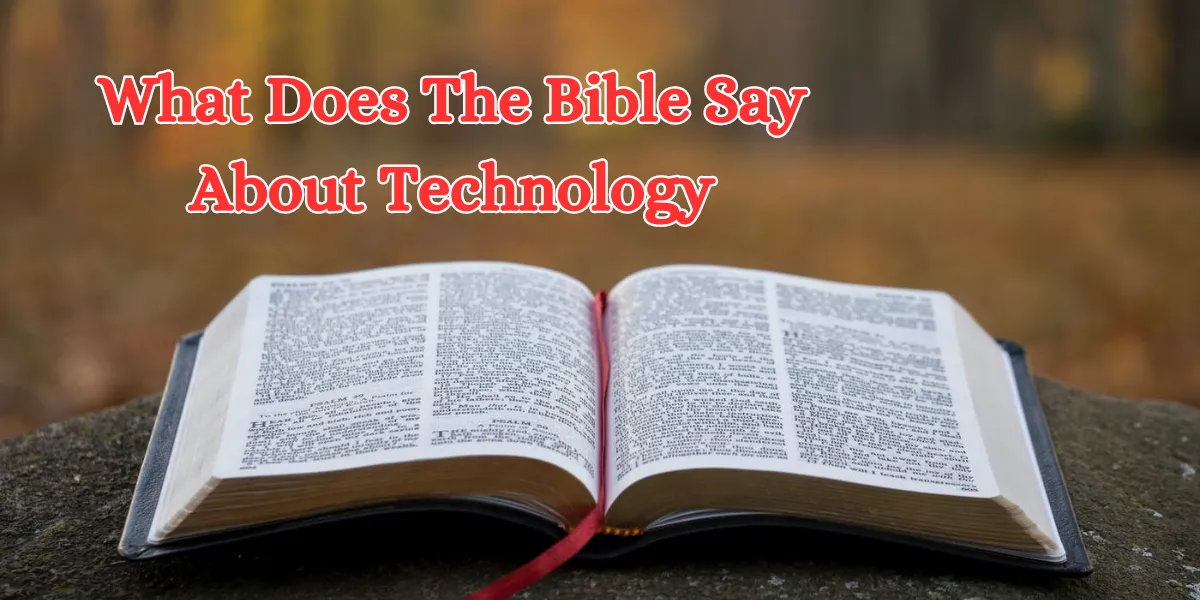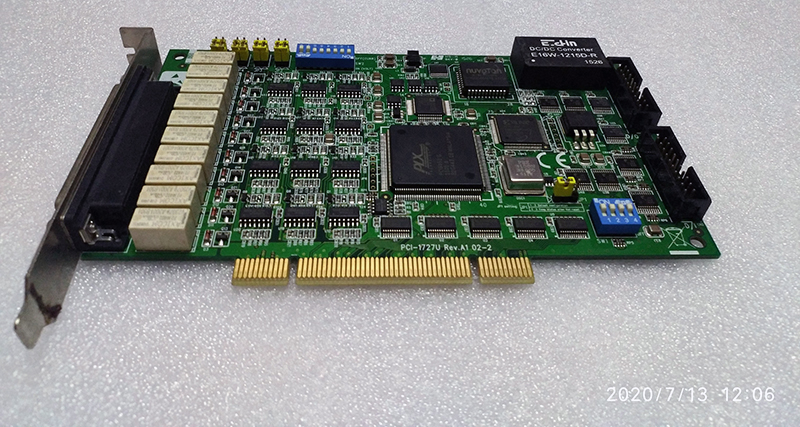What Does the Bible Say About Technology?
What does the Bible say about technology? In an age where our lives are increasingly intertwined with digital devices and complex machines, it’s a question worth exploring. The Bible, with […]
What does the Bible say about technology? In an age where our lives are increasingly intertwined with digital devices and complex machines, it’s a question worth exploring. The Bible, with its timeless wisdom, offers a unique perspective on the nature of technology, its impact on our relationships, and its potential for both good and evil.
From the creation account to the instructions for building the Tabernacle, the Bible reveals a God who is both the ultimate creator and the one who empowers humanity to use their ingenuity. It provides insights into how we should approach technology, considering its potential to enhance or hinder our relationships, work, and ethical values. This exploration delves into the biblical perspective on technology, examining its influence on our lives and how we can navigate its complexities with wisdom and discernment.
The Bible and the Nature of Technology
The Bible, particularly the book of Genesis, presents a profound perspective on the relationship between humanity and the natural world. This perspective has significant implications for how we understand and approach the development and use of technology.
Creation and Human Dominion
The Bible’s account of creation in Genesis 1 and 2 depicts God as the ultimate creator of the universe and all living things, including humans. Humans are created in God’s image, given dominion over the earth and its resources, and tasked with cultivating and caring for it. This mandate to rule over creation implies a responsibility to use God’s gifts wisely and sustainably.
The Bible’s perspective on human dominion is not a license for exploitation but rather a call to responsible stewardship. This perspective suggests that technology, as a tool for harnessing and manipulating the natural world, should be used in a way that reflects God’s intentions for creation.
Technology in the Bible
The Bible contains numerous examples of tools and crafts, showcasing the human capacity for ingenuity and innovation. These examples demonstrate that technology has always been an integral part of human civilization.
- Tools for Agriculture: The Bible describes various tools used for farming, including plows, sickles, and threshing instruments. These tools were essential for cultivating the land, producing food, and sustaining human life. The use of such tools demonstrates a practical application of technology for fulfilling God’s mandate to “till and keep” the earth.
- Craftsmanship and Construction: The Bible highlights the skill and artistry of ancient artisans. Examples include the construction of the Ark of the Covenant, the Tabernacle, and Solomon’s Temple. These intricate structures required advanced knowledge of materials, design, and construction techniques, showcasing the human capacity for creativity and innovation in building and crafting.
- Weapons and Warfare: The Bible also describes the use of weapons, such as swords, spears, and bows and arrows. These tools were often employed in warfare and conflict. While the Bible does not endorse violence, it acknowledges the reality of conflict and the use of technology for defense and offense.
These examples from the Bible demonstrate that technology has always been a part of human existence, reflecting both our ingenuity and our capacity for both good and evil.
Technology and Work: What Does The Bible Say About Technology

The Bible provides a framework for understanding the relationship between work, leisure, and the use of resources. It emphasizes the importance of work as a gift from God, a means of providing for oneself and others, and a way to contribute to society. It also highlights the need for rest and Sabbath observance, recognizing that work should not consume our entire lives. In this context, technology can play a significant role in both enhancing and hindering these principles.
Technology’s Impact on Work, What does the bible say about technology
Technology has the potential to enhance work in various ways. It can automate tasks, increase efficiency, and improve productivity. For example, the use of software programs can streamline accounting processes, allowing businesses to focus on other aspects of their operations. Similarly, agricultural technology can help farmers increase crop yields and reduce labor costs.
However, technology can also hinder these principles if used improperly. For example, the constant availability of technology can lead to work-life imbalance, blurring the lines between work and leisure. Moreover, automation can displace workers, leading to unemployment and economic hardship. It’s crucial to use technology responsibly and ethically to ensure it benefits society as a whole.
Automation and Artificial Intelligence
Automation and artificial intelligence (AI) are rapidly changing the landscape of work. While these technologies have the potential to create new opportunities and improve productivity, they also raise concerns about job displacement and the potential for algorithmic bias.
The impact of automation and AI on the future of work is a complex issue. While some jobs may be lost to automation, new opportunities will emerge in fields related to technology development, maintenance, and management. It’s essential to invest in education and training programs to equip workers with the skills needed to thrive in a technology-driven economy.
The Bible’s principles of work, leisure, and resource use can guide us as we navigate these changes. We must strive to use technology in ways that enhance human dignity, promote social justice, and ensure that everyone has the opportunity to contribute to society and enjoy the fruits of their labor.
Technology and Ethics
The Bible offers a rich framework for navigating the ethical complexities of technology. Its teachings on truthfulness, integrity, and the responsible use of power provide valuable insights into how we should approach the development and application of technology.
The Biblical Foundation for Ethical Technology Use
The Bible emphasizes the importance of truthfulness and integrity in all aspects of life, including our interactions with technology. The Ten Commandments, for instance, prohibit lying and stealing, principles that can be applied to the digital realm.
“You shall not bear false witness against your neighbor.” – Exodus 20:16
This commandment underscores the importance of honesty and integrity in our online communications and the use of technology. We are called to be truthful in our online interactions, avoiding the spread of misinformation or the manipulation of data.
- The Bible also highlights the need for responsible use of power. In Proverbs, we are warned against the dangers of abusing power, a principle that applies to the use of technology.
“The Lord detests dishonest scales, but accurate weights find favor.” – Proverbs 11:1
This verse cautions against the misuse of technology for personal gain or to exploit others. We are called to use our technological capabilities for good, promoting justice and equity.
- The Bible’s teachings on love and compassion also provide guidance for ethical technology use. The Golden Rule, found in Matthew 7:12, encourages us to treat others as we would like to be treated.
“So in everything, do to others what you would have them do to you, for this sums up the Law and the Prophets.” – Matthew 7:12
This principle should guide our interactions with technology, ensuring that we use it in ways that are respectful, compassionate, and promote the well-being of others.
Examples of Technology Used for Good and Evil
Technology can be a powerful tool for good, enabling us to connect with others, share information, and solve complex problems. For example, social media platforms can be used to raise awareness about important social issues, while telemedicine can provide access to healthcare in remote areas.
- However, technology can also be used for evil. For instance, social media can be used to spread hate speech and misinformation, while surveillance technologies can be used to violate privacy.
- Artificial intelligence (AI) is another example of a technology with both potential benefits and risks. AI can be used to develop life-saving medical treatments and improve efficiency in various industries. However, there are concerns about the potential for AI to be used for malicious purposes, such as creating autonomous weapons systems or manipulating public opinion.
Last Point
As we continue to advance in technological innovation, the Bible serves as a timeless compass, guiding us through the ethical and societal implications of our creations. It reminds us that technology, while a powerful tool, is ultimately meant to serve humanity and reflect God’s glory. By grounding our understanding of technology in biblical principles, we can use it responsibly and ethically, shaping a future where innovation and faith work in harmony.
While the Bible doesn’t explicitly address modern technology, its teachings on wisdom and compassion suggest a thoughtful approach to its use. This includes advancements like advanced hearing technologies , which can be used to improve communication and understanding, fulfilling the biblical call to love our neighbor.
Ultimately, the Bible encourages us to use technology in a way that reflects God’s love and serves humanity.




